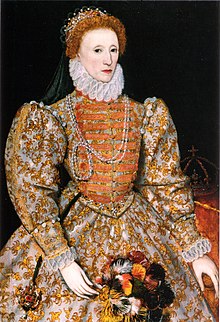 |
| An L.A. production based on Anne Carson's collection Men in the Off Hours |
Books:
Brave (U.S., 2012) directed by Mark Andrews & Brenda Chapman (review here)
Life of Pi (U.S./Taiwan) directed by Ang Lee (review here)
Literary themes and events discussed, book and film reviews, short essays on life such as it is.
 |
| An L.A. production based on Anne Carson's collection Men in the Off Hours |
 |
| Holbein's portrait |
 |
| Katherine |
She orders her women out: a vehement gesture, a child scaring crows ... the ladies gather their trains, flap languidly away ... Lady Rochford is the last to take wing, trailing her feathers, reluctant to yield ground.The image of crows is significant and apt, a bad omen, foretelling disaster for Anne and her kin - the Boleyns and the Howards.
 |
| Anne Boleyn |
Up there are carved and painted faces of the dead: More, Fisher, the cardinal [all executed on the King's orders], Katherine the queen [banished from court, her marriage annulled]. Below them, the flower of living England. Let us hope the roof doesn't fall in.
 |
| Jane Seymour |
 |
| Princess Mary |
 |
| Elizabeth I |

Michelle Alfano's Made Up of Arias beautifully evokes an immigrant childhood lived against the backdrop of opera, which stands in for all that her characters have lost or will never attain even while it speaks to the most common and everyday of their tragedies and joys. Alfano writes with the humour and compassion of someone who not only understands her characters, but forgives them.
Nino Ricci, Governor General Award winning author of The Origin of Species and Lives of the Saints
As a writer, Michelle Alfano has it all. Her narratives are beguiling and true and populated by vivid, convincing characters. She has a mastery of metaphor, each one is effective. I can’t say enough about her prose; it is sensuous and crystalline, intelligent and insightful. I have read her novellaMade Up of Arias three times. It stood up under the multiple readings. Each time I was both entertained and moved.
Caterina Edwards, Finding Rosa: A Mother with Alzheimer's, a Daughter in Search of the Past
Cultural observer and literary editor Michelle Alfano’s A Lit Chick blog is sharp, funny and thoughtful; her Bressani Award-winning novella,Made Up Of Arias, shows another side of this talented writer. In a story as operatic as the central metaphor in the lives of the Pentangeli family, whose mother sings arias from the rooftop and children act out dramas in front of a billboard on Paradise Street, this novella explores the tragedy and comedy of everyday life, with grace notes that beautifully evoke both postwar Sicily and a working class Ontario neighbourhood of the nineteen-seventies. Highly recommended.
Terri Favro, The Proxy Bride (Quattro Books, 2012)
Made Up of Arias is all the voices of childhood, all the stories that allow a child's imagination to safely try on adult themes. Alfano is a keen observer, with an eye for detail and a gift for humour. ... This charming story is well worth reading.
Julie Booker, Partners, ICCT, Spring 2009
Made Up of Arias is an important and welcome addition to the tradition of Italian-Canadian literary voices. [Michelle Alfano] is also an outstanding writer whose fiction carves a distinct place in Canada’s national narrative. Beautifully observed, richly comic, heartbreaking and compelling, Made up of Arias, deserves to be read by a broad audience as well as specialists.
Lilia Topouzova, Italian Canadiana,December, 2009
In her novella,Made Up of Arias, writer Michelle Alfano speaks in the beautifully compelling, yet remarkably guileless voice of her protagonist and narrator, Lilla Pentangeli ... Michelle Alfano’s mastery of English and Italian, her knowledge of opera, and her ability to elevate the ordinary, are inspiring and transforming.
Lina Medaglia, The Demons of Aquilonia, Accenti Magazine, Spring, 2010
I laughed out loud and cried too as I read this wonderful novella...There is such joy in this family, and there is such sorrow too…and Michelle Alfano evokes all of that with her stunning prose and her ability to make us see and grow to love this family, and just like in an opera, we also get to see ourselves.
Rachel Guido deVries, VIA – Voices in Italian Americana, Fall 2012
Michelle Alfano’s [Made Up of Arias] is a colourful, beautiful and fascinating story of the Pentangeli family immigrating to Canada …
Stefania Bartucci, “Italian-Canadian author Michelle Alfano connects opera to immigration”, Tandem, February 13, 2010

